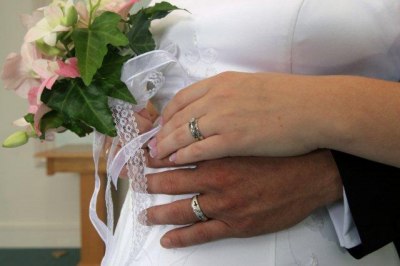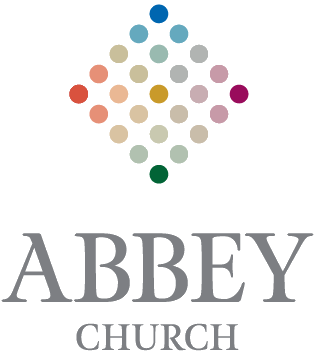- What Marriage is
- Requesting to get Married (State legislation)
- Preparing for Marriage (as a ‘Sphere of Influence’)
- The Marriage Service
- Continuing in Marriage
- Divorce & Remarriage

What Marriage is
Today there is a lot of debate in society about what marriage is, who should be allowed to marry and what rights and responsibilities ought to accompany that commitment. Undoubtedly the ‘traditional form’ of marriage is coming under increasing pressure from lobbyists and legislative bodies; and it has rightly been pointed out that the ‘traditional form’ has itself evolved into its current shape. When the Christian movement first began it was rejected by both Jewish and Roman authorities as a heretical sect, so it certainly did not act in an official capacity as registrar of marriages. Only after the Church was embraced by the empire (and by subsequent political states around the world) did it receive the power and authority to act in such a way. Whether this was a good thing for the Church is, of course, open to debate. Even when the Church acted as official marriage registrar, it did so in a relatively informal way: ceremonies were not elaborate, records were sparse and couples even within the Church presented themselves and their children at the altar for formal recognition. In that way things have come full circle in our society. Stranger than the phenomena of co-habiting couples seeking a ‘Christian marriage’ later in life, is the fact that marriage is still an aspiration for people and, more surprisingly, that there is a growing momentum to recognise homosexual partnerships as full and valid marriages. This debate rages in the media every day, dividing families and congregations across all the church traditions. Some, even within the Church, regard it as a cause celebre and the rock on which the whole Christian Church will finally flounder unless it changes its stance radically. And even for those who want to confine ‘marriage’ to the lifelong partnership of one man and one woman, there remains the harsh realities of domestic abuse, abandonment, divorce, remarriage and extra-marital affairs. The Church is required to exercise both a prophetic and a pastoral voice here. As things stand Abbey, in line with our denomination’s governing body (The General Assembly), believes that marriage is a lifelong and loving relationship between one man and one woman and that God gifts this to us with several purposes in mind:
- To signify the mystical union between Christ and His Church
- For the lifelong companionship, help and comfort which husband and wife ought to have of each other
- For the continuance of the holy ordinance of family life, that children, who are the heritage of the Lord, should be duly nurtured and trained up in godliness
- For the welfare of human society, which can be strong and happy only where the marriage bond is held in honour
Although marriage is not peculiar to the Church of Christ, and is honourable in all, Christians ought to marry other Christians for the sake of their spiritual wellbeing and for the sake of the Church to which they belong.
Because we regard marriage as a gift of God for the strengthening of society, we welcome opportunities to meet with couples and talk with them about the important life-long commitment that they are considering. We know that an increasing number of couples are ‘living together’ before they marry (sometimes for many years before), but we still believe that marriage itself is a special and sacred thing that is honourable in all, so we include them in our invitation.
Requesting to get Married (State legislation)
The State sets the terms and conditions under which a legal marriage must be conducted and registered, so official notification must be made by the couple according to law beforehand (currently at least three months notice is required). Details of legislation will be supplied by the Registry Office. If you are considering Abbey in this regard please contact the Minister as soon as possible to arrange an initial meeting. Once again we encourage couples to participate in our Marriage Preparation Course to strengthen their understanding and commitment. Our desire is not to be a wedding venue, but to be an extended family of faith to those that come. We should also point out that an increasing number of couples are getting married in the Registry Office and then considering some form of Church Blessing thereafter; we are happy to talk this through and explore the possibility of providing such a blessing.
Sphere of Influence
We have previously talked about the ‘spheres of influence’ that each of us occupies. We may not regard ourselves as being very influential at all but we might be surprised at the impact we have on the lives of others. People who are about us quite a bit observe the way we talk and act, and they draw certain conclusions about our honesty, integrity, love, commitment and so on. They may look up to us and try to copy our example or they may find us sadly lacking and reject us and our faith in Jesus. It is one thing to fight for the preservation of ‘Christian marriage’ in the public square, but unless our Christian marriages are qualitatively better than the relationships and marriages of others, we have failed at the most profound level. So marriage can be a ‘sphere of influence’ in a number of ways: it can be an example and inspiration to our children, to other couples and to society at large. Furthermore, where a couple are married and one becomes a believer in and follower of Jesus, the first place for bearing witness to Christ is in the marriage and in the home; this something that we explore in our Cell Groups.
Preparing for Marriage
Since marriage is so precious and important, couples should think carefully about what they are intending to do. Preparation is key to success, no more so than in the choice and subsequent nurturing of a lifelong relationship. There are many good books and resources available to couples, but we would emphasise the unique benefit of the Bible, prayer, sacraments and fellowship of the Church. We will also make Marriage Preparation Courses available as required.
The Marriage Service
The details of the marriage service will be explained to you by the Minister as part of the preparation. Every effort will be made to ensure that it is a meaningful start to your lifelong relationship by discussing your particular needs and hopes and relating these to the liturgy. We would point out that we are legally obliged to use a certain form of words in the vows, so you should pay particular attention to this. A wedding ceremony is as much an act of worship as any other service conducted in the Abbey, so we want to ensure that nothing detracts from this. As with every act of worship the final responsibility for it lies with the Minister.
Continuing in Marriage
It is one thing to get married, quite another to continue faithfully in that marriage through its various seasons of life. An increasing number of couples separate and divorce within a short time, often because they had a very romantic notion of what married life should be like. In other cases economic stress or emotional manipulation can put a great deal of pressure on a fledgling relationship. Some couples, who have lived together for years, are surprised to discover that their relationship changes when they change the status from cohabiting to marriage. Because of this, we want to support couples in their marriages in any way we can. This can be done through Marriage Enhancement Courses, but it can also be done informally through the Cell Group. Once again we regard these cross-generational Cells as vitally important because young couples can meet with, observe and seek advice from couples who have been married longer and understand the challenges.
Divorce & Remarriage
The Church is aware that life is messy, that choices may lead to unforeseen outcomes and that, despite the best efforts of people some marriages will end. The Church must balance the integrity of marriage against the reality on the ground. Once again the issue of divorce and remarriage divides churches, not least because Scripture presents a range of examples and commands. The Presbyterian Church will, under certain circumstances, remarry divorcees, but we encourage couples to seek counselling and preparation beforehand and we are not obliged to marry anyone just because they request it. Since a high percentage of second marriages also fail we consider it our duty before God to proceed cautiously.
